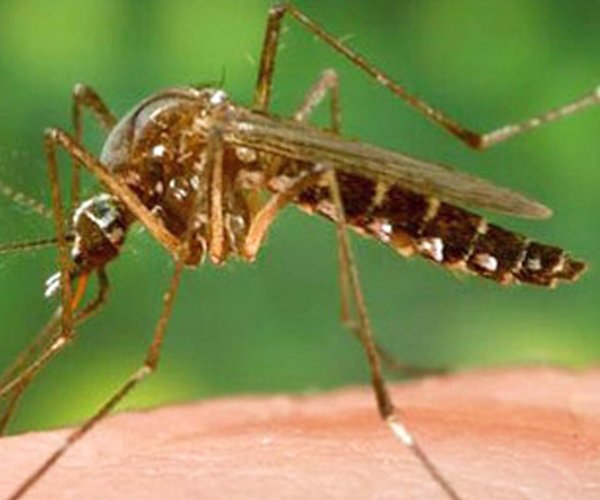A California animal advocacy group is suing Foster Farms for using a water-intensive slaughter method on chickens while the state suffers through drought.
The Animal Legal Defense Fund on Wednesday sued Foster Farms, which operates a large slaughterhouse and chicken processing plant in Livingston, for wasting water while slaughtering chickens through “electric immobilization.” As Livingston’s largest water customer, Foster Farms accounts for more than 60 percent of the city’s water usage through the consumption of approximately four million gallons of water each day.
ALDF says this disproportionate water use is due to Foster Farms’ live-hang slaughter process, which hangs live, conscious chickens upside down through shackles on their feet before carrying them through a pool of water that is charged with a low electric current. The electricity paralyzes the birds so that they cannot vocalize or struggle before their throats are slit by an automated razor.
This type of slaughter is notorious not only for the animal suffering it causes, ALDF says, but also for the massive amounts of water it requires. Not only is water used to immobilize the chickens, but large volumes of water are also needed to clean up the mess left behind by terrified chickens vomiting and defecating on themselves.
ALDF believes Foster Farms could reduce its exorbitant water usage by adopting more humane slaughtering methods, and wants a state judge to order the company to cut back on the amount of groundwater it uses at the plant.
According to ALDF executive director Stephen Wells, it takes 518 gallons of clean water to produce just one pound of consumable chicken.
“The profligate water use at this Foster Farms facility adds insult to injury, and the excessive water use in slaughtering chickens violates California law,” Wells said in a statement. “The fact that the slaughterhouse is operating in a water-scarce area — during a megadrought — makes its water use even more egregious."
The lawsuit states that Foster Farms consumes millions of gallons of water from what the California Department of Water Resources has declared a “critically overdrafted” Merced Subbasin, and points to other slaughter methods, like controlled atmosphere stunning and controlled atmosphere killing as feasible techniques which require significantly less water.
ALDF says that in an attempt to resolve the matter without litigation, they notified Foster Farms on two separate occasions that its water use is unreasonable and violates the California Constitution.
According to the California State Drought Monitor, a majority of Stanislaus and Merced counties are currently in a moderate drought. The top of the state is in a severe drought, while a very small area at the northern tip of California is currently in extreme drought.
Foster Farms responded in May to ALDF, stating that it was unable to divert resources to the issues raised given their focus on “maintaining operations and assuring a continuous food supply to our nation.” The plant was also ordered by Merced County Public Health to shut down from Sept. 1 through 7 due to a COVID-19 outbreak, which has seen nine Foster Farms employees die so far. Foster Farms declined to comment on the ALDF lawsuit.





